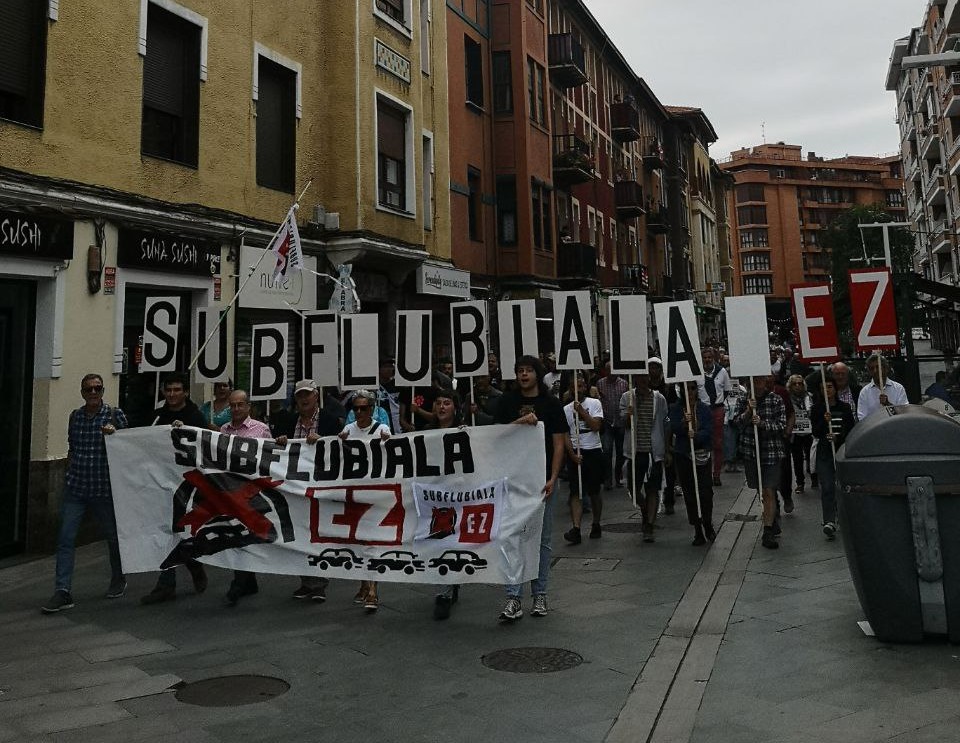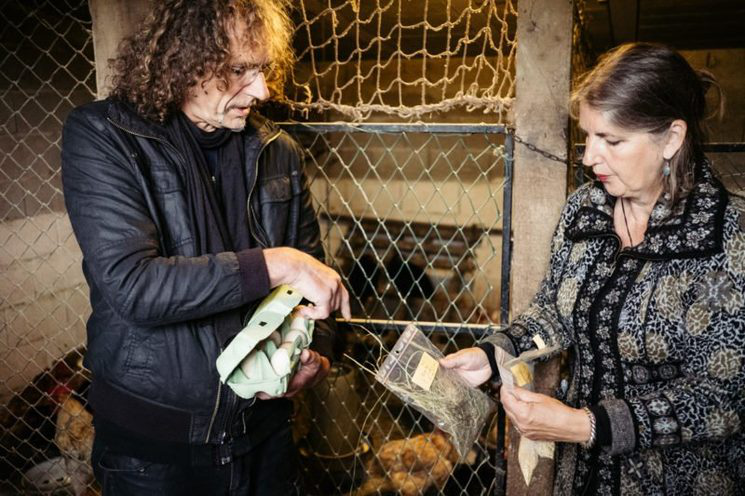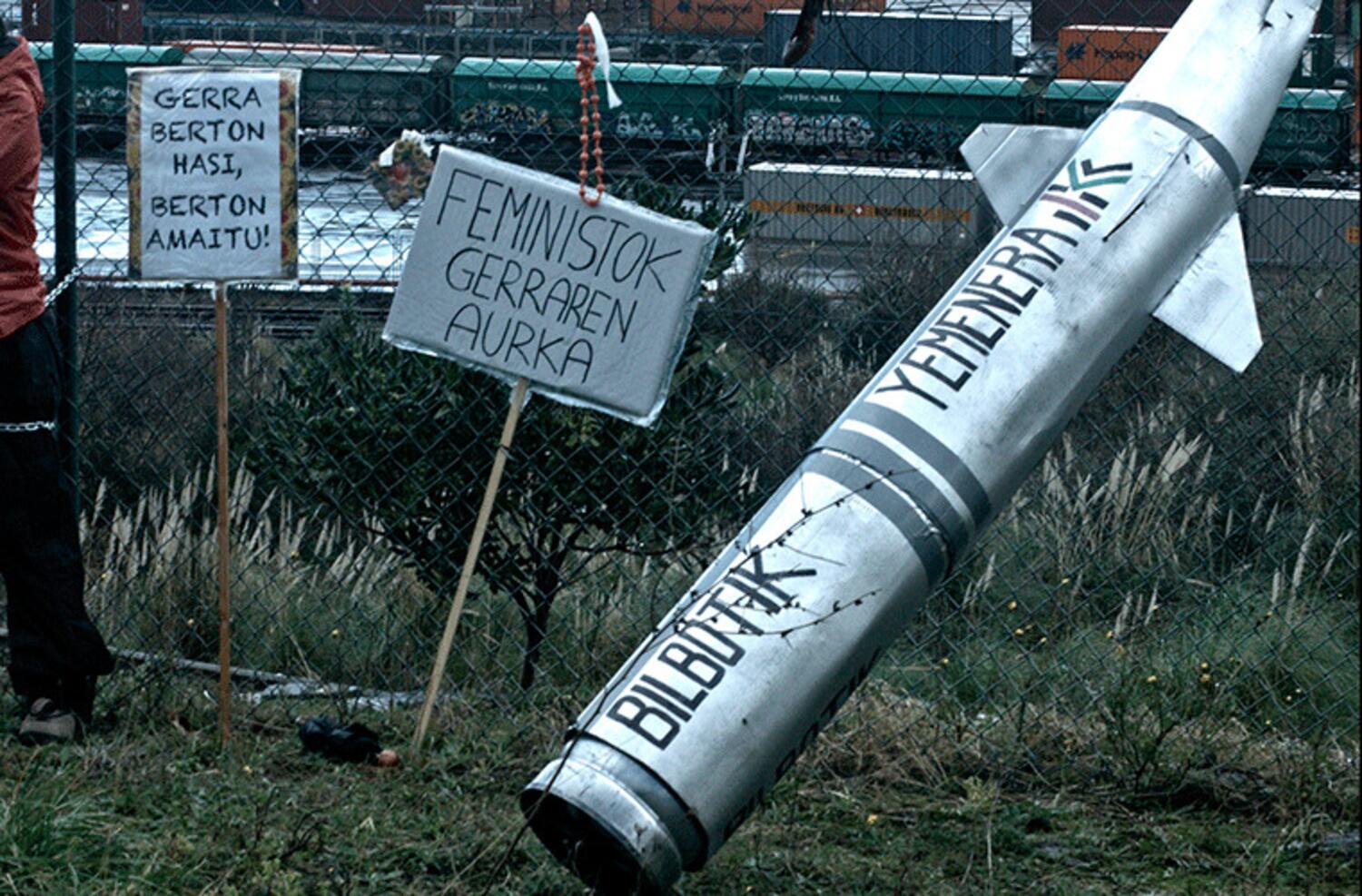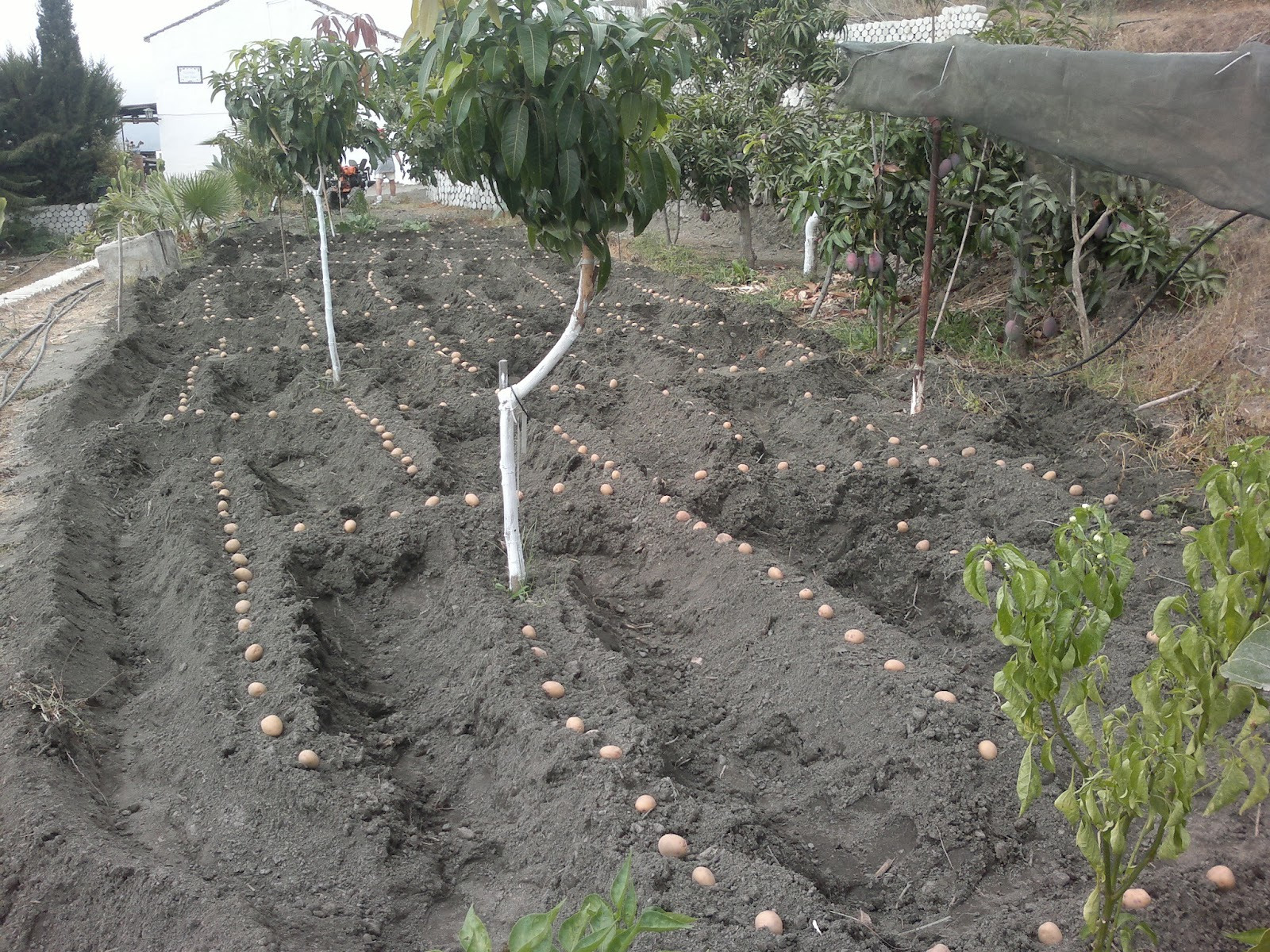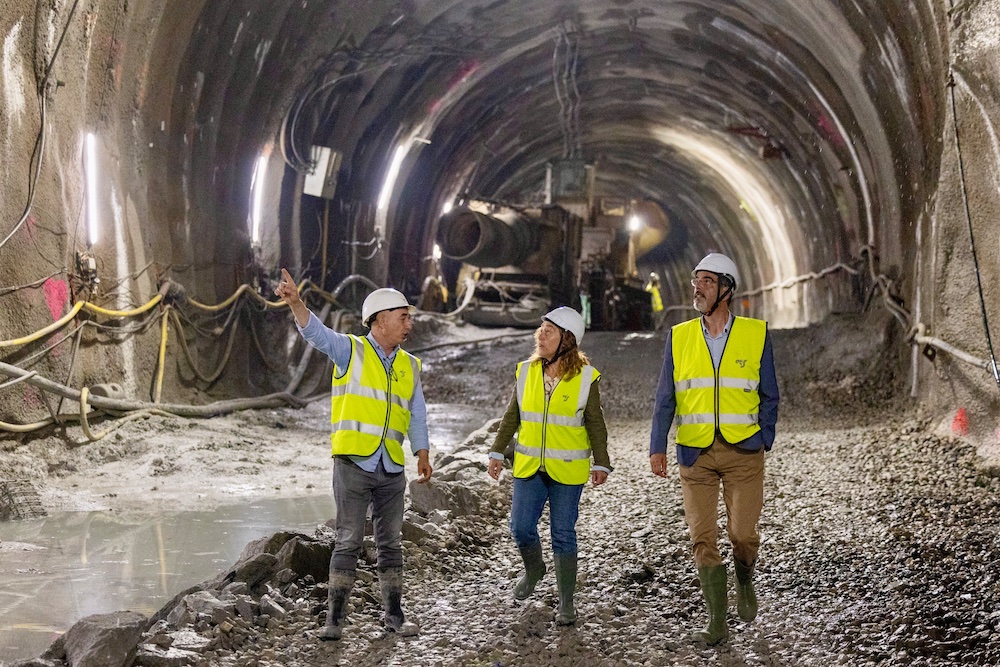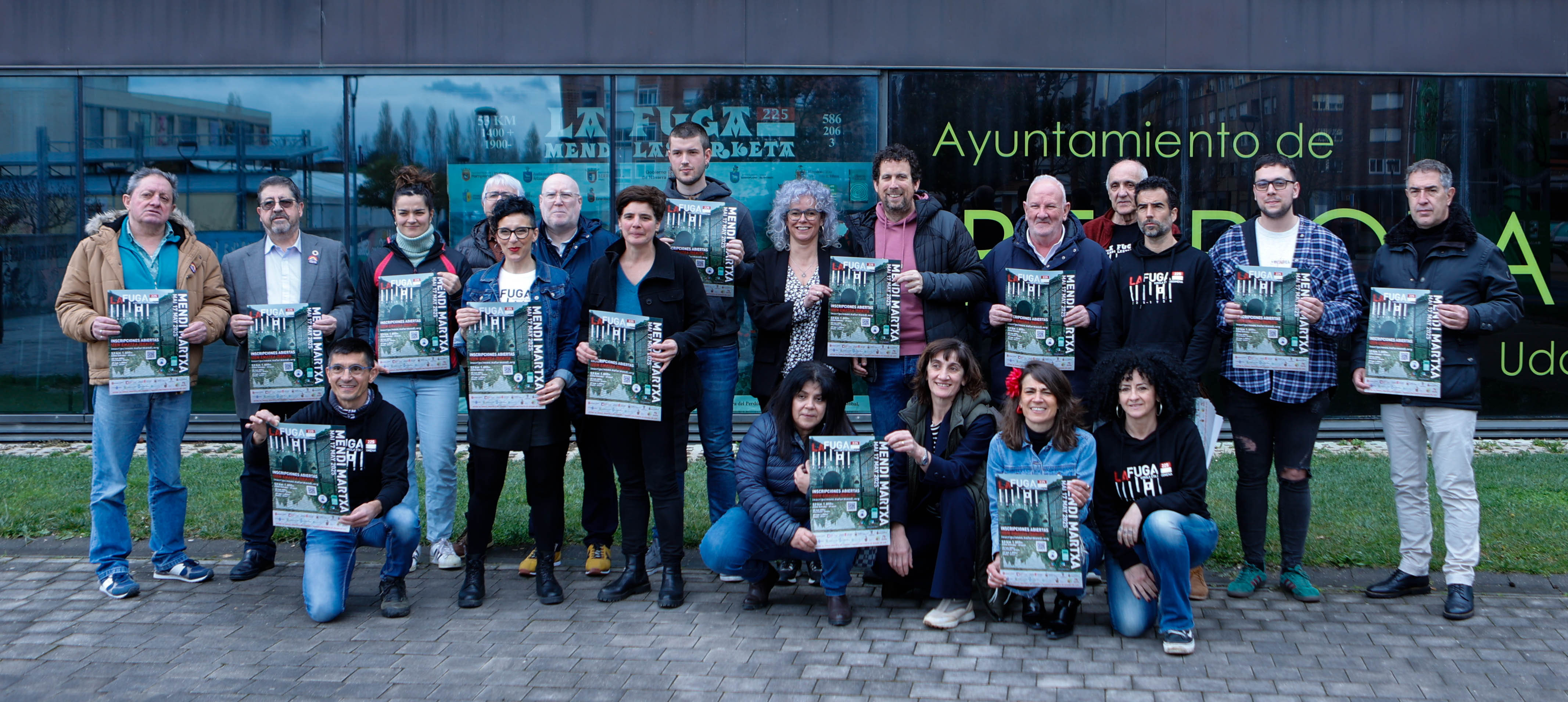"Earth-related issues are boiling, but many times we stay in the void"
- ARGIA launched a new programme on land and crops on 19 April. Eli Pagola (Ereñotzu, 1995) and Mattin Jauregi (Ikaztegieta, 1998) will guide the programme weekly. Visible in argia.eus.

"Mood is a program that hears the earth." What experience and knowledge do you have so far?
Mattin Jauregi: I try to live from the land, from beekeeping, in the Bees de Balerdipe project. We're trying to protect the native black bee and make local production. Beekeeping has so far been associated exclusively with honey, but we have created new products: propolis, fresh pollen, praliné, cocoa creams… In white sugar products we replace sugar with honey. We collaborate in various media, besides ARGIA: Euskadi Irratia and Tolosaldeko Ataria.
Eli Pagola: I'm from Ereñotzu (Hernani, Gipuzkoa) and I followed the camp closely. In my house, nobody has lived from the ground, but we've always had livestock, orchard, forest -- For studies I have the title of Renewable Energy Engineering. Milito to cope with development and I'm interested in the eco-social transition, Naiz radio attempt: Stop machines.
Before starting this program they were already known...
M. Jauregi: I met Eli at the bertsos session of a neighborhood near Ikaztegieta.
E. Pagola: I met Mattin running.
Mattin, the possibility of making a video podcast that you proposed to us...
M. Jauregi: I saw people talking, what problems are in the primary sector and what -- From there, and as I started writing articles in ARGIA, we found it a good opportunity to do this program to see the problems there are.
Eli, the word "Egonarria" was launched by you, thinking about the name. What does it mean to you?
E. Pagola: I've heard people from the field who feel more stable as a value. It's quiet, but it's also knowing how to be, being there. I relate it above all to knowledge and awareness of what happens in the environment. The session is related to the character it has been acquiring, I thought it was a good name.
Youth and residents in rural areas. How do you experience the relationship between the countryside and the city?
E. Pagola: I live and militate in the field in search of a new model of life and another system organization. All the studies I have carried out in the urban space and everyday life is also based on the urban space. I move naturally in the day-to-day from one camp to another, I have friends in both, it's not divided in my case.
M. Jauregi: The family comes from the farmhouse and since we were young we have had the habit of spending weekends in the farmhouse. Since my grandfather no one has lived in the farmhouse, but I have always had an interest: at the time I also wanted to learn about it, but in the end I started working in the factory (I am no longer in the factory). We will sell to Tolosa every Saturday. I've always been a market fan, because I like to hear live what they'll sell me. Now I live it on the other side, selling inside, and I find it nice, enriching.
I do not see the people and the countryside apart, not even for the relations of my environment the countryside is unknown, although some of them do not live in the countryside.
E. Pagola: In Basque Country, the cities are small and very close to the rural distance. I believe that almost all the inhabitants of the city will have friends in rural areas. The rural environment is undervalued in terms of working conditions and needs each other: the city cannot eat on its own, and if all the activities carried out in the city were opened to the rural environment, it is not known what lifestyle would be produced, the separation from work is linked to the idealization of the rural environment.
Are Earth's issues boiling?
M. Jauregi: Yes, they're pil-pil. If it's the future, I don't know.
E. Pagola. We have entered the era of emergencies, climate change and ecological emergency is the urgent thing, now we have to learn everything... It works in a phased way.
M. Jauregi: As a result of living so fast, I don't know if we attach importance to these issues. We see that the subject is boiling, but many times we are left in the void, without doing or modifying anything.
For the future, discouraging messages are being conveyed about the Earth and the primary sector. How do you look to the future?
M. Jauregi: I see it difficult to improve the future, I think it will continue to get worse. But if there is anything to stop that process, let those big and shattering not happen at the current rate. Let things be measured more than now.
E. Pagola: If we follow the current pattern, conditions will get worse and intensity will depend on our actions. However, I think we are in time to make a chip change and live a little better. For this we will have to organize and listen to a lot of experiences, that is also Egonarria’s objective. We will have to make some big changes, but we have a chance to live a little better.
SHORT
Are you a very restless person?
Mattin Jauregi: I think so.
Eli Pagola: That's what I project.
What does the other contribute to the programme?
M. Jauregi: Elik patxada.
E. Pagola: Let Mattin ask inside.
What working tool would you bring to the session?
E. Pagola: Listening helmets.
M. Jauregi: Lapatza.
What is your favorite work time?
M. Jauregi: When work goes easily, it is not forced.
E. Pagola: Coffee.
What do we have to do with all this decorative straw at the end of the session?
M. Jauregi: A good nap.
E. Pagola: Prepare the second season.
Do not look for this connection from Ezkio or Altsasu, let alone crossing the Ebro River through Castejón. The connection, or rather the connections, between the Basque Y and the AVE of Navarre is already a reality. It is these links in the plural that should concern us and... [+]
Udaberrian orain dela egun gutxi sartu gara eta intxaurrondoa dut maisu. Lasai sentitzen dut, konfiantzaz, bere prozesuan, ziklo berria hasten. Plan eta ohitura berriak hartu ditut apirilean, sasoitu naiz, bizitzan proiektu berriei heltzeko konfiantzaz, indarrez, sormen eta... [+]
Ohe beroan edo hotzean egiten da hobeto lo? Nik zalantzarik ez daukat: hotzean. Landare jaioberriek bero punttu bat nahiago dute, ordea. Udaberriko ekinozio garai hau aproposa da udako eta udazkeneko mokadu goxoak emango dizkiguten landareen haziak ereiteko.
Duela lau urte abiatu zuten Azpeitian Enkarguk proiektua, Udalaren, Urkome Landa Garapen Elkartearen eta Azpeitiako eta Gipuzkoako merkatari txikien elkarteen artean. “Orain proiektua bigarren fasera eraman dugu, eta Azkoitian sortu dugu antzeko egitasmoa, bere izenarekin:... [+]
Itsasoan badira landareen itxura izan arren animalia harrapari diren izaki eder batzuk: anemonak. Kantauri itsasoan hainbat anemona espezie ditugun arren, bada bat, guztien artean bereziki erraz atzemateko aukera eskaintzen diguna: itsas-tomatea.
EH Bilduk galdera sorta bat erregistratu zuen Eusko Legebiltzarrean Donostiako Metroaren igarobideko lanen gainkostua argitzeko. Informazio hori atzo jakinarazi zuen Susana Garcia Chueca Mugikortasun sailburu sozialistak.
Kirola eta oroimena uztartuko dituzte, bigarrenez, mendi-martxa baten bitartez. Ez da lehiakorra izanen, helburua beste bat delako. La Fuga izeneko mendi martxak 1938ko sarraskia gogorarazi nahi du. Ezkabako gotorlekuan hasi eta Urepelen amaituko da. Maiatzaren 17an eginen dute.








